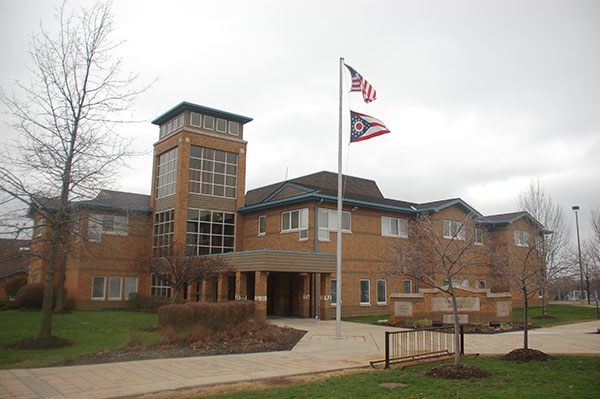School Board Eases Out-of-School Suspension Policy

After the preschool moves to Bryden, Hardis and Walsh see the Fairmount building as a space to be shared with the community.
On Monday Dec. 16, the Board of Education unanimously passed a provision to the student handbook allowing alternatives to out-of-school suspension under certain circumstances.
“The main purpose of the change is to accentuate the rehabilitative aspect rather than punitive aspect for first time offenders,” said Board of Education President Dr. Brian Weiss.
The provision states that these alternative consequences may include, “referral for evaluation/assessment, community service and/or referral to an alternative education program i.e., in-school restriction, weekend detention.”
The policy is retroactive to the beginning of this school year.
“It is common practice to enforce a policy in a retroactive manner such as this when we feel that a policy needs to be changed or updated,” Weiss wrote in an email. “If the result of enforcement of a policy is not what we feel is in the best interest of a student today, it probably wasn’t in their best interest six months ago.”
However, these alternatives are not for all. The policy states that an offender can receive these consequences upon administrative consideration of “the student’s ownership of his/her actions and the student’s disciplinary history.”
According to Superintendent Dr. Richard Markwardt, “ownership of his/her actions” refers to whether the offender originally admits to the act or lies first, and is later caught. “Prior disciplinary history” means a student’s record of broken school rules.
“The thing this does more than anything administrators have done in the past is to define two conditions that need to be considered by an administrator,” Markwardt said.
“[Student records have] always been looked at in the past but typically even if a student had a squeaky clean behavior record, if a student would commit an offense that would typically result in an out-of-school suspension, the kid received an out-of-school suspension,” Markwardt added.
Some violations will not receive leniency.
“There are some infractions where the consequence may still be expulsion,” said Weiss. “If a student brings a weapon to school… punitive measures are more appropriate and often result in expulsion.”
According to Markwardt, the Board took this measure to redress punishments viewed as too severe.
“The thinking that drove this was that some students could have an offense on their record that could cause them consequences down the road that would exceed the nature of the offense,” he said.
When asked if any specific student actions had precipitated the provision, Weiss could neither confirm nor deny.
“I can’t answer that without telling you information that would involve implications of specific situations or students,” Markwardt said.
Students are divided about the issue.
“I agree with the [new policy] … Instead of punishing everyone by taking kids out of class, [they are] doing something [that] benefits everyone, like community service,” Student Council Executive Vice President Nathan Wolkoff said.
“Rehabilitative methods absolutely do need to be encouraged, especially for younger students. However, by not suspending students for an action….that [could be] illegal, the school is not preparing students for the world outside the Beachwood bubble,” said senior Anshika Niraj.”High school is the time for students to become adults, but divorcing actions from consequences is never going to achieve this.”
Weiss said the School Board is satisfied with this change.
“We’re happy with the change,” he said. “The bottom line, as always, is a change that’s in the best interests of kids.”

Grant Gravagna has been active on The Beachcomber staff for four years. As Editor-in-Chief, he oversees a staff of reporters, photographers and cartoonists....












